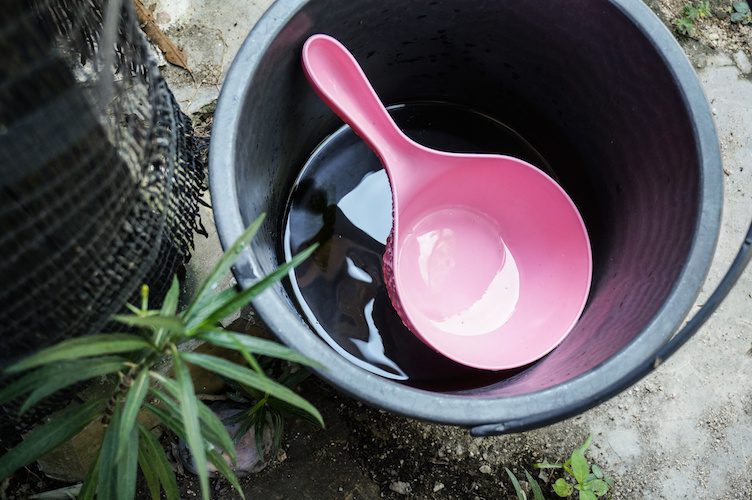
Flowers are not the only thing to benefit from the coming of spring; April showers set the stage for mosquito season. As the weather warms up, mosquitos are born in the standing water inside old tires, flower pot saucers, and anything else that can hold as little as a tablespoon of water. Besides being annoying, mosquitoes can carry viruses that can make you sick and even kill. The viruses to worry about in North Texas include Dengue, Chikungunya, Zika, and West Nile.
According to the Centers for Disease Control (CDC), “The most effective way to avoid getting sick from viruses carried by mosquito is to prevent mosquito bites.” And the best ways to do that is to act now–before all the mosquitoes get here.
Whether you are aware of it or not, your state and county are probably already gearing up for mosquito season. Last week the Texas Department of State Health Services released a Zika Health Alert with updates to their testing guidelines. Soon the cities of Greenville and Dallas will start to roll out their mosquito prevention and control efforts.
But you shouldn’t just rely on the professionals in your county. To keep as many people as possible from getting sick this season, everyone should join in the effort, and that includes you.
You can help protect your family and community by taking some simple steps. Start with your immediate surroundings and work your way out.
Mosquito proof your house
Don’t wait until the mosquitoes are buzzing to take measures to keep them out of your house. Put screens in windows and doors. Patch any screens that need it and check that there are no gaps around windows and doors. If your house can’t fully be closed off to mosquitoes, at the very least, set up mosquito nets over beds and cribs. Permethrin is a pesticide that can be used to impregnate nets, clothing, and fabrics used to ward off mosquitoes. Once applied it can last through several washings.
Dump standing water
Mosquitoes lay eggs in or near standing water. The eggs hatch into larvae that need standing water to survive, turn into pupae, and then fly off as mosquitoes. According to the Environmental Protection Agency, “Successful mosquito management requires intervening at some point during the mosquito’s life cycle before they bite and infect a human.”
The Centers for Disease Control recommends covering, emptying or cleaning any items that hold water in or outside your house at least once a week.
Use larvicides
For standing water that you can’t get rid of, the CDC says you can use larvicides to kill the larvae before they turn into mosquitoes. They offer this PDF, What you need to know about using larvicides, that you should read before purchasing or using any of these chemicals. They also have information on the pesticides to use on adult mosquitoes.
Killing mosquito larvae is one of the most effective ways of combating mosquitoes for two reasons. One, they can’t fly away yet, and two, they tend to be in higher concentration in water.
Stay alert to surveillance activities
Your state and city governments along with pest control professionals will be on alert for disease trends related to mosquitoes. They do this in an effort to employ an integrated mosquito management program to anticipate and prevent disease in your area. This map of Texas shows the number of 2017 viral infections by county.
Take advantage of all the surveillance done in your area to stay ahead of the mosquitoes. You can do this by checking the following websites:
- TexasZika.org
- Greenville.tx
- McKinneyTexas.org
- DallasCityHall.com
Speak up and get others involved
If you see something, say something. Contact authorities in your area if you become aware of a mosquito or virus risk. For example, in Dallas you can call 311 to report any standing water in ditches, vacant lots or on neighborhood property. If you have any questions, don’t hesitate to ask. Share what you learn to help others. Better yet, organize a community event to raise awareness in your area.

